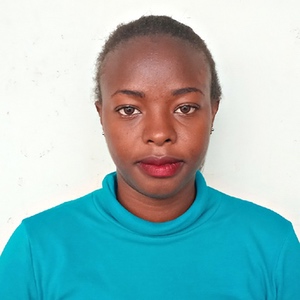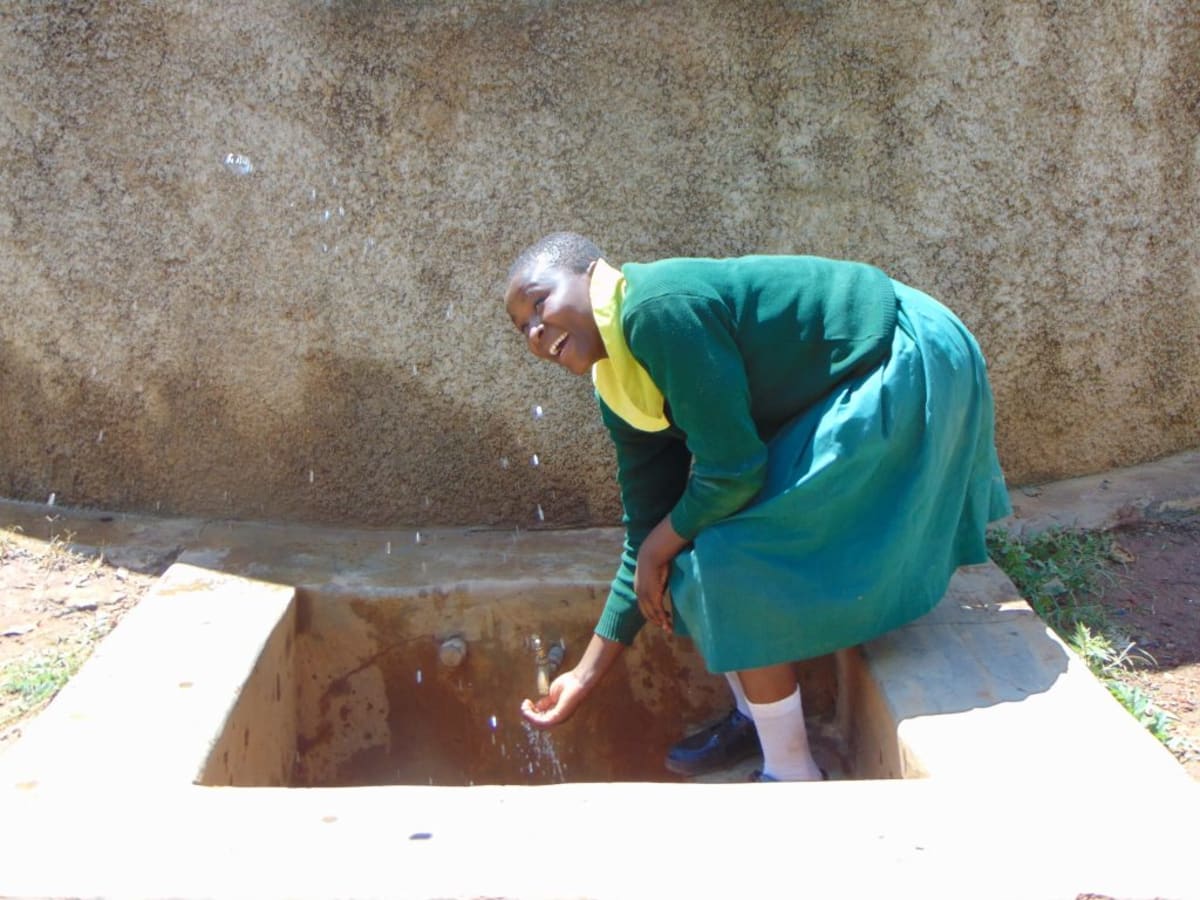Madegwa Primary School began in 1939. It currently has a student population of 434, comprised of 214 boys and 220 girls. They are taught by 14 teachers and supported by three other staff.
Students begin arriving at 7am to sweep their classrooms and pick up litter around school grounds. Normal classes begin at 8:20 and go until lunch, when the majority of students are sent home to find food. Class eight students remain to be served lunch by the school cook. Classes begin again at 2pm and go until 3:10pm when sports and clubs start up. Whether it's football, poetry, or debate, students are asked to participate in an interest until study hall at 4pm. Students are released for the day at 5pm.
Water
The headteacher is sure that if visited by the government health department, they will be issued a closure notice for their extreme shortage of water and sanitation facilities.
There is one plastic tank that catches rainwater, which has a small capacity of 5,000 liters. This water is strictly rationed, and its use is prioritized for drinking and cooking lunch for class eight. As rainwater is finished up, the three support staff are asked to go out into the community and bring back water.
This tank is well-cared for, and the quality of water is good. However, the students are constantly sacrificing one need or the other so that the day can continue. There is often no water to be used for mopping or cleaning latrines, nor no water to fill the hand-washing stations the school has set up.
Water scarcity affects the students and staff every single day, and adds constant worry to students and teachers who should only need to concern themselves with academics.
Sanitation
There are eight latrines for girls and six for boys, of which some have collapsed and others are almost full. Students form long lines during break, and many haven't made it through the line by the time class starts up again. Classes are delayed, and more latrines are the only solution to this issue.
The school knows that hygiene and sanitation is important, and has done their best with the resources they have. They've purchased disinfectants to lessen the smells in latrines, and they keep soap by the three functional hand-washing stations they have. It's unfortunate that most of the time there isn't enough water to accompany these soaps and cleaning agents.
"We appreciate your coming to this school to assess and plan to fix the situation. The school really needs sanitation facilities such as the latrines and the tank; the state is poor, I can assure you," Headteacher Jane Msachi said.
"This is a dream come true to us!"
Here's what we're going to do about it:
Training
There will be two days for teachers, students, and parents to meet at the school to learn about hygiene and sanitation practices. They will also attend sessions on the management and maintenance of their new rainwater catchment tank, latrines, and hand-washing stations. We will use all of our training topics to empower participants to invest their time in positive behaviors that promote health, prolong life, and enable them to become more self-reliant citizens.
The facilitator will use PHAST (participatory hygiene and sanitation transformation), ABCD (asset-based community development), CTC (child to child), lectures, group discussions, and handouts to teach health topics and ways to promote good practices within the school. The CTC method will prepare students to lead other students into healthy habits, as well as kickstart a CTC club for the school.
Hand-Washing Stations
It's wonderful that the school has three functional hand-washing stations similar to the two we plan to donate; this will allow there to be one hand-washing station per 90 people. The additional two hand-washing stations are 50-liter plastic barrels on metal stands, and each has a tap to conserve water. These are often delivered by hygiene and sanitation training so they can be used for demonstrations, but always arrive by a project’s completion.
The CTC club will take over the responsibility of filling these stations with water, and will ensure that there is always a cleaning agent like soap or ash.
VIP Latrines
Two triple-door latrines will be constructed with local materials that the school will help gather. Three doors will be set aside for each gender. And with a new source of water on school grounds, students and staff should have enough to keep these new latrines clean.
Rainwater Catchment Tank
A 50,000-liter rainwater catchment tank will help alleviate the water crisis at this school. The school will also help gather the needed materials such as sand, rocks, and water from the spring for mixing cement. Once finished, this tank can begin catching rainfall that will be used by the school’s students and staff. They will no longer suffer from extreme water scarcity.
We and the school strongly believe that with this assistance, standards will significantly improve. These higher standards will translate to better academic performance for these little scholars!
This project is a part of our shared program with Western Water And Sanitation Forum (WEWASAFO). Our team is pleased to provide the reports for this project (formatted and edited for readability) thanks to the hard work of our friends in Kenya.

 Rainwater Catchment
Rainwater Catchment
 Rehabilitation Project
Rehabilitation Project


































